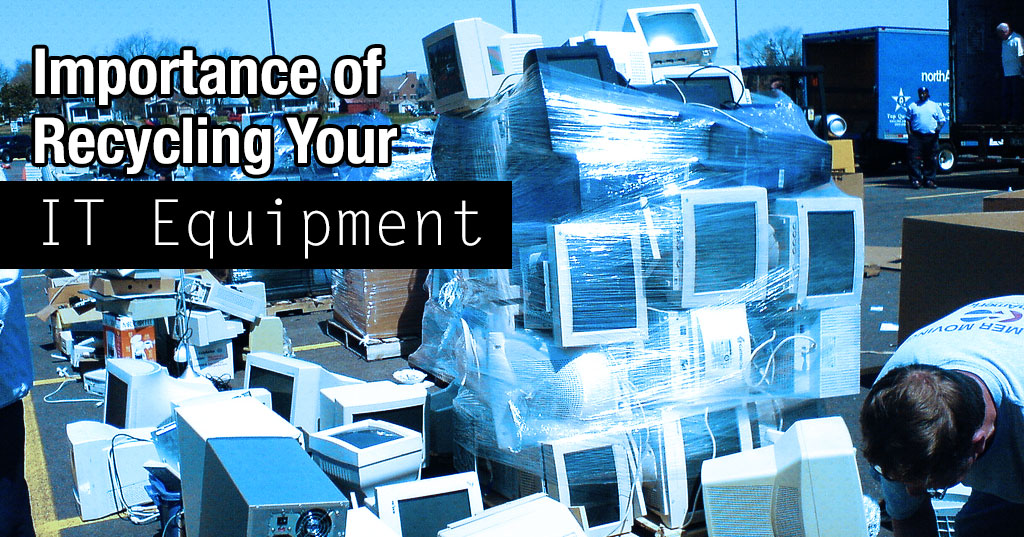The Importance of Recycling Your IT Equipment
Posted on January 17, 2017 in Uncategorized
There are many important reasons to go to the trouble of recycling your retired IT equipment rather than just tossing it into the dumpster when no longer needed.
Environmental
According to ComputerWeekly.com, an average PC contains plastic (23%), ferrous metals (32%), non-ferrous metals (18%), electronic boards (12%), and glass (15%). A single computer can contain up to 2kg of lead, and the complex mixture of materials make PCs very difficult to recycle for the owner of the equipment themselves.
It is possible to recycle many parts of an IT system, particularly monitors, PCs and servers. Computer peripherals, such as printers and scanners, can also be recycled, as well as landline and mobile phones. Recycling one million laptops saves the energy equivalent of electricity used by more than 3,500 US homes in a year. For every million cell phones we recycle, 35,000 pounds of copper, 772 pounds of silver, 75 pounds of gold and 33 pounds of palladium can be recovered.
Convenience
If you are like most business owners, you have accumulated a large amount of old technology equipment. Most local recycling sites located within the State of Maryland do not allow bulk disposal of retired IT equipment, but instead limit the drop-off to a single item per vehicle. If yours is a large organization, this could mean several trips just to dispose of a small portion of your old equipment.
Having a professional recycling firm handle these duties for you is much more affordable than you may think. The convenience of their personnel coming to your site and picking up the equipment for you is well worth the cost. A professional IT recycling firm should provide you with a detailed list of all equipment disposed of, including make, model and serial numbers. They should also provide you with certificates as proof that all hard drives and magnetic media storage devices have been properly destroyed.
Security
The single most important reason you should retain a professional recycling firm to handle your retired technology is security. Mechanical hard drives commonly found in servers and desktops computers, solid state drives found in laptops, and flash drive technology used in phones and memory sticks can house long-forgotten yet sensitive data in documents, emails, and even videos and pictures.
When you use the file deletion utility of your computer or mobile device’s operating system, it does not actually delete the data. Instead, it marks that location on your system’s storage device as being available to overwrite the space with new data. A lot of readily available data rescue software can very easily retrieve “deleted” data from storage devices that may even be damaged.
If you are in an industry that has regulations for securing patient health information, credit card information and any personal data (and that covers nearly every type of business), you should have not only a strategy in place, but also an IT policy that states how data storage devices and IT equipment are destroyed. A few dollars now can save you thousands later.
For more information, please feel free to reach Dave Thomas, Director of Technology Services, at dthomas@jlktech.com or 443.829.9897.











